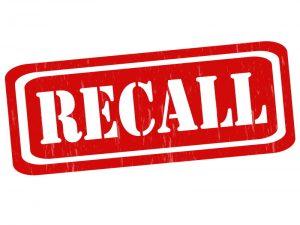
Pharmaceuticals undergo rigorous testing before they enter the consumer market. Once they receive approval and are in use, the U.S. Food & Drug Administration (FDA) continues to monitor them. In certain situations, the FDA or medication manufacturer will recall a medication due to health concerns, mislabeling, contamination, mixups, and manufacturing defects.
Unfortunately, some patients learn about dangerous drugs too late. If you were injured or lost a family member due to one of the top five reasons for drug recalls, a personal injury lawyer from our firm could help you build a case to hold the drug company responsible and recover compensation.
Why Would a Drug Company of the FDA Issue a Drug Recall?
There are five primary reasons why a drug company might recall a product or why the FDA might issue a warning about the product. They include:
The Medication is Hazardous to Users’ Health
Only after widespread use do the risks associated with some medications become evident. For example, according to the FDA, initial tests on phenylpropanolamine—a once-popular ingredient in weight-loss drugs and decongestants—did not uncover that it caused hemorrhagic stroke, or bleeding into the brain.
If the FDA receives enough reports that a medication causes unexpected and dangerous side effects, it will issue a warning or a recall.
Poorly Packaged or Mislabeled Medications
Sometimes the instructions on a medication label are unclear or misleading, which can lead to an overdose, under-dose, or adverse effects because of improper use. There may not be anything wrong with the medication itself, but the packaging could make it difficult for the average user to take it as intended.
If the FDA receives reports that many patients are taking a drug incorrectly due to insufficient instructions, they may require clarifications, issue warnings, or recall the medication for updates.
Contamination of the Medication
There are several steps to producing medication and delivering it to patients. As such, there are plenty of opportunities for a drug to become contaminated. Often, a medication will be contaminated by another pharmaceutical ingredient, which may or may not cause adverse reactions.
In other cases, the medication becomes contaminated by an ingredient in the formula. For example, this led to the recall of Zantac and other ranitidine formulations. The FDA requested that manufacturers recall the drugs because they contain a cancer-causing chemical, N-Nitrosodimethylamine (NDMA).
Mismatched Drugs and Packaging
Though rare, the medication inside a drug package may not be correct. A manufacturer may put the wrong drug or wrong dose in a package without knowing it, which could require a recall of a particular batch or several batches of a drug.
This is more likely to occur in your local pharmacy, though—your pharmacist may fill the prescription with the wrong medication. Before you take a new drug, find out what the pill looks like, and verify that the medicine you received looks the same with each refill.
Manufacturing Defects that Alter the Medication
Mistakes during the drug manufacturing process could affect its purity, quality, and/or potency. In turn, the drug may not actually help patients, and their conditions could worsen while they are left untreated. Alternatively, the drug could be more potent than necessary, causing adverse effects.
According to a study from the British Journal of Clinical Pharmacology, the distribution of substandard drugs is a growing problem in the United States. This could be, in part, because of manufacturing defects.
For a free legal consultation, call 800-537-8185
What Should I do If My Drug was Recalled?
Although most recalls are related to minor issues, it is critical to take a drug recall seriously. Depending on the nature of the recall, ignoring it could be deadly. You should take these steps as quickly as possible after a recall:
- Learn more about the recall by visiting the FDA website.
- Do not stop your medication before talking to your doctor.
- Contact your doctor to discuss the recall and what you should do.
- Bring any of the recalled drugs back to your pharmacist.
- If you had any adverse effects, talk to a personal injury attorney to find out if you have grounds for a defective drug claim.
If you suffered injuries, worsening illness, or other negative effects possibly related to the medication, you may be able to hold the drug company responsible. Dangerous drugs attorneys can help you file a claim or sue the manufacturer.
Reach the Morris Bart, LLC Attorneys Near You for a Free Consultation
If you or a loved one suffered injuries due to a defective drug, the Morris Bart law firm may be able to help. An injury lawyer from one of our 15 locations could file a claim for compensation for your lost income, medical bills, non-economic damages, and more. We have offices in Louisiana, Alabama, Arkansas, and Mississippi.
We will review your case for free today. Call (800) 537-8185 for a free initial consultation.
Questions?Call 800-537-8185
to find a Morris Bart office near you.


